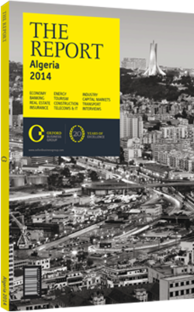This chapter includes the following articles.
Economy

After years of sustained high oil prices and a comparatively prudent fiscal policy – albeit balanced on a high breakeven price – Algeria has built up considerable financial buffers, which will help the country to ride out the current decline in global commodity prices. Declining oil prices have also highlighted the government’s efforts to develop the non-hydrocarbons sector, something it has sought to do for several years, with varying levels of success. The state continues to play a key role in the economy, through both regulatory tools and direct intervention via state-owned enterprises. According to the IMF, overall GDP is projected to jump 4% in 2014 to €167.5bn, up from 2.8% in 2013.
This section includes interviews with Amara Benyounes, Minister of Commerce; Issad Rebrab, CEO, Cevital; Mohamed Laid Benamor, President, Algerian Chamber of Commerce and Industry; Kamel Moula, President, Club des Entrepreneurs & des Industriels de la Mitidja; and Réda Hamiani, Former President, Algerian Business Leaders’ Forum.

